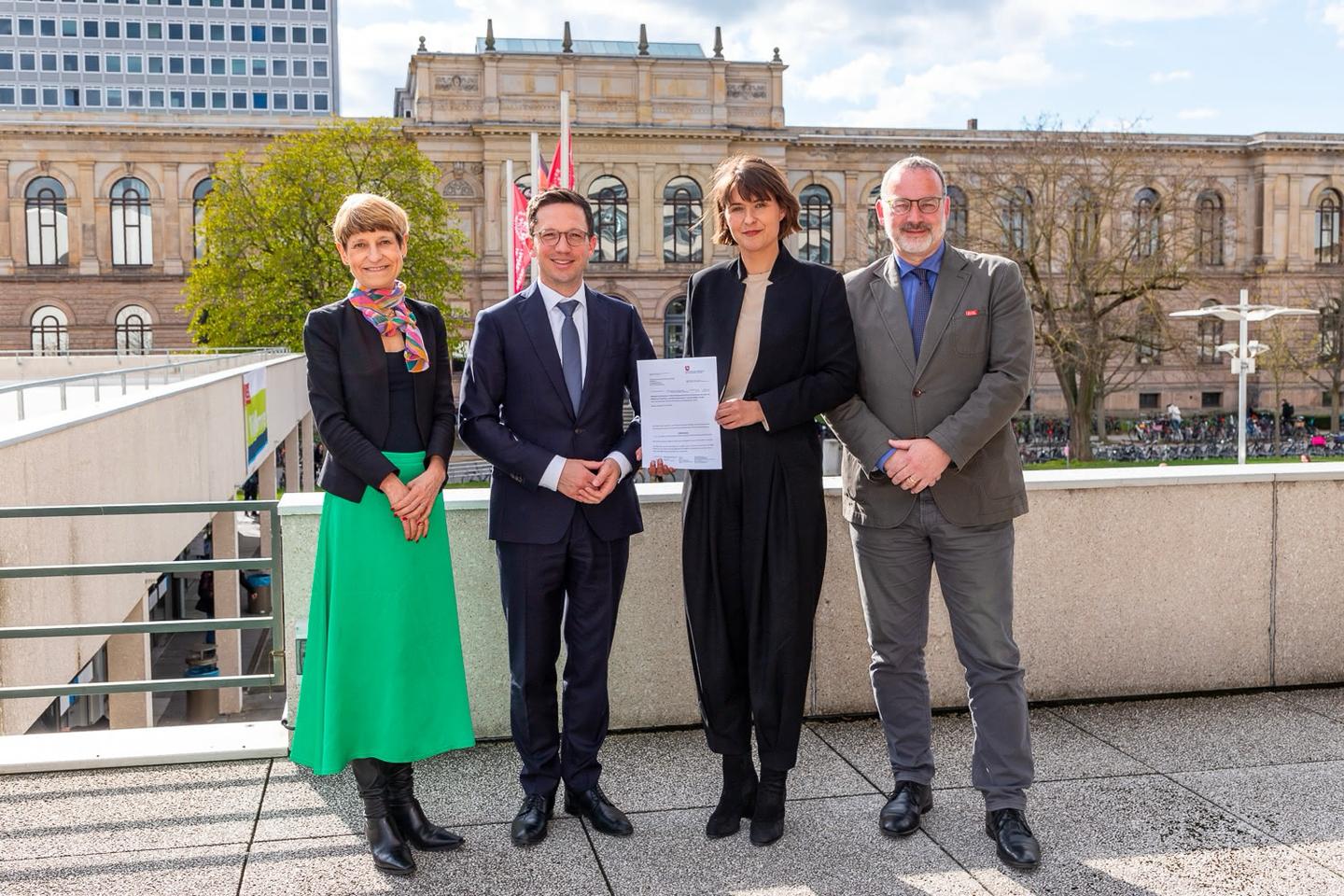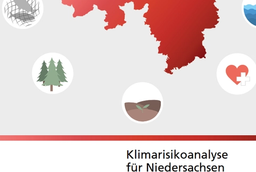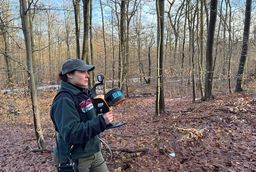A Centre for Climate Research in Lower Saxony
- April 13, 2023
- 2 min. Reading time

Climate change is becoming increasingly noticeable in Lower Saxony as well. Temperatures are rising and drier spring and summer months along with occasional heavy rainfall are becoming more and more frequent. In order to decisively advance research on climate change in the coming years, interdisciplinary teams will soon be working on solutions for a safe and just climate future in issue-specific future-oriented laboratories. The activities will be bundled in the Zentrum Klimaforschung Niedersachsen (ZKfN) (Lower Saxony Centre for Climate Research) at Technische Universität Braunschweig. The state of Lower Saxony is supporting the settlement of the ZKfN at TU Braunschweig with around 1.9 million euros. Lower Saxony’s Minister for Science and Culture, Falko Mohrs, handed over the corresponding funding notice to TU President Angela Ittel on April 13th.
With the establishment of the Zentrum für Klimaforschung Niedersachsen at TU Braunschweig, the state is making an important contribution to tackling the climate crisis.
Climate-friendly urban development and the forest ecosystem
The funding from the programme zukunft.niedersachsen of the state of Lower Saxony and the Volkswagen Foundation will finance the establishment of the business and coordination office at TU Braunschweig. The topics for the first two future-labs have also already been set: The focus will be on climate-friendly urban development and spatial planning and the effects of climate change on the forest ecosystem. In July, the Lower Saxony Ministry of Science and Culture will publish the calls for applications for the initial funding.
“It is great that the Zentrum Klimaforschung Niedersachsen (ZKfN) is located at TU Braunschweig. At our university, we have already been conducting cutting-edge research on climate change and its effects for decades, be it in the field of coastal protection, urban climate or even the influence of climate warming on animals and plants. In recent years, this work has become particularly relevant and urgent,” says TU President Angela Ittel. “At TU Braunschweig, our decisions are also determined by a consistently action-guiding approach to sustainability within the framework of holistic development on the path to excellence. To highlight the importance of the centre and the topic, the ZKfN has been established as a designated office of the president.”
More Posts
All
Climate risk analysis for Lower Saxony 2025
NIKO has published its climate risk analysis for Lower Saxony in 2025 – 42 assessed risks as a basis for climate adaptation.
2 min. Reading time
Invitation to the Werkstatt der Mutigen
Kick-off for the Ecosystem Social Sustainability (ESS)
2 min. Reading time
Laser scans in the forest: measuring CO₂ between red beeches and deadwood
What a windless morning, 1,000 square meters of forest, and a laser scanner reveal about carbon storage.
4 min. Reading time